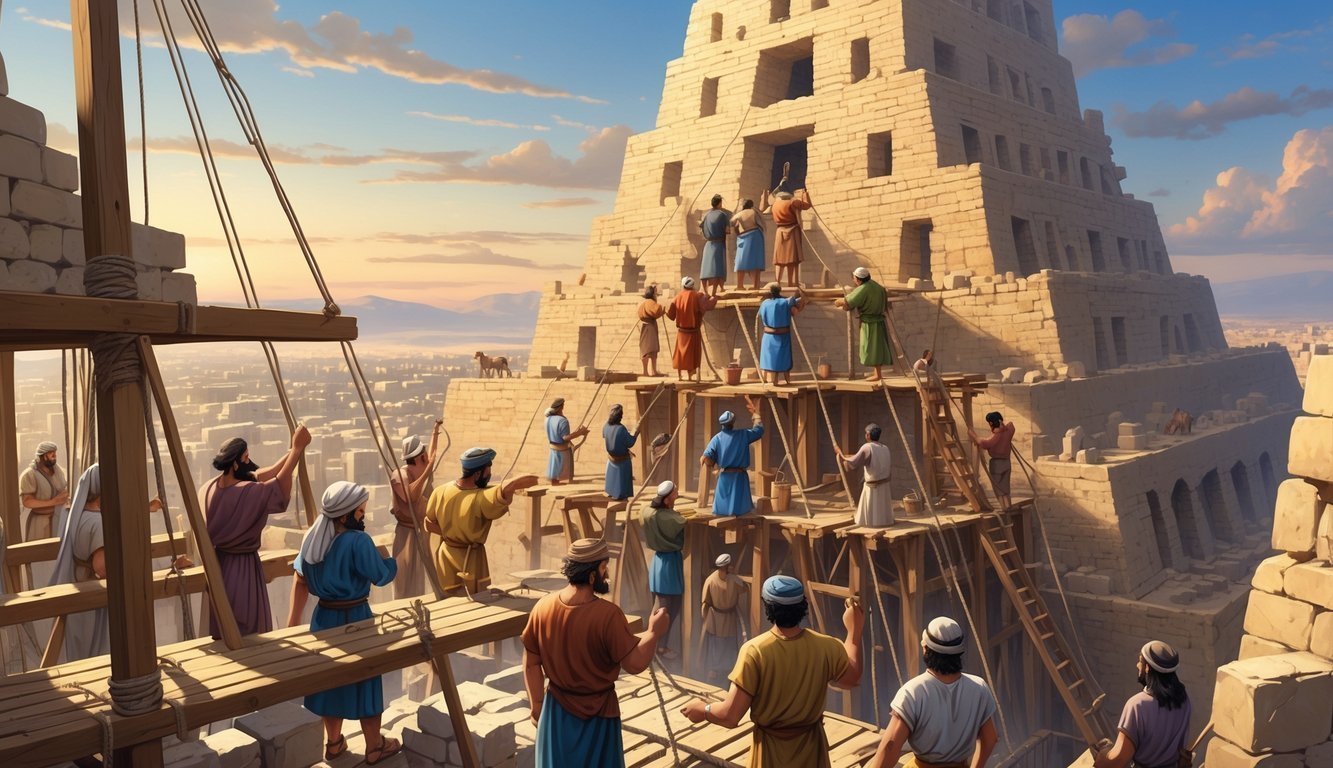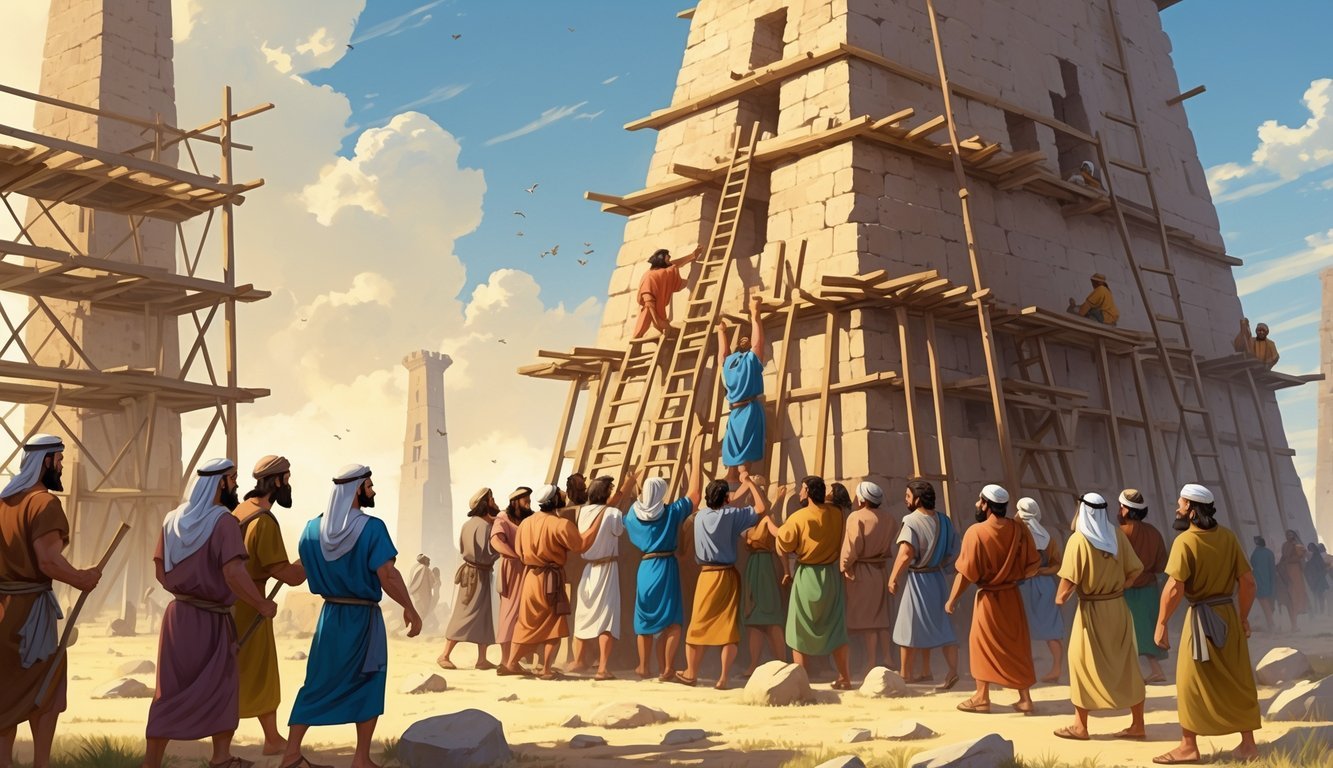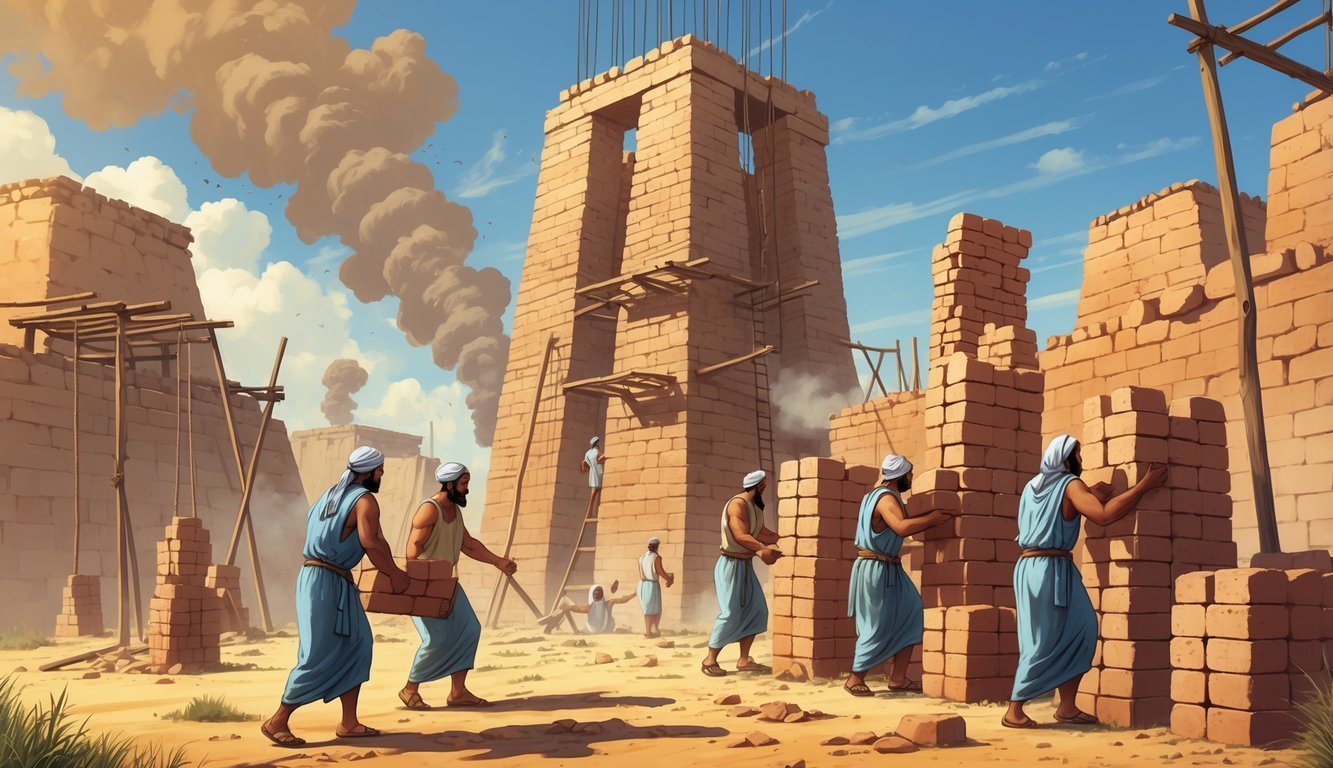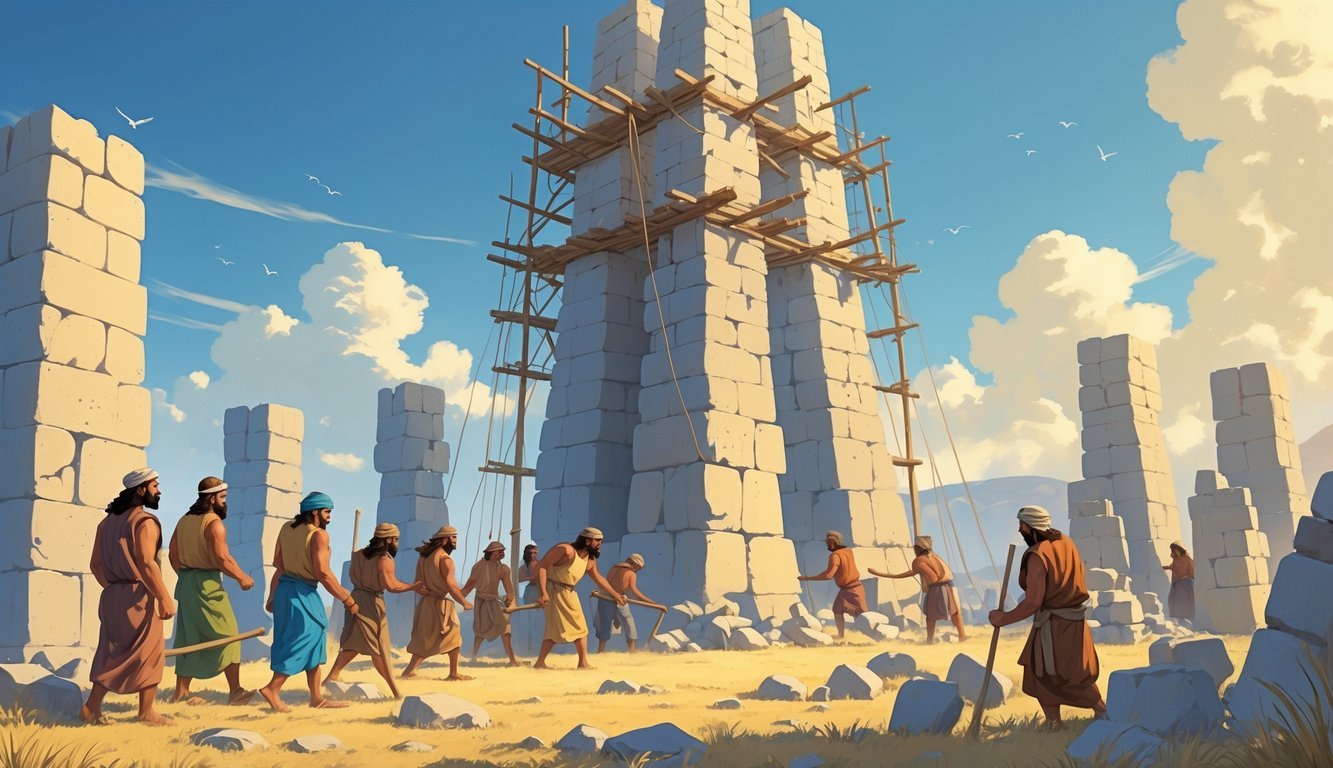Physical Address
304 North Cardinal St.
Dorchester Center, MA 02124
Physical Address
304 North Cardinal St.
Dorchester Center, MA 02124
The Tower of Babel narrative highlights early human innovation in building with bricks and tar, showcasing teamwork, ambition, and the consequences of pride against divine intentions.

Genesis 11:3 captures a moment when people decided to make bricks and bake them so they could build something really sturdy.
Instead of grabbing stones, they picked bricks and stuck them together with tar.
The verse highlights how they tried out new building materials to make their structures stronger.
This step mattered because it changed how folks built things back then.
The verse keeps it simple, but it gives you a peek at the technology and teamwork behind their efforts.
When you look at this verse, you see people joining forces to tackle problems and get creative with their tools.
It also sets the scene and explains why the materials mattered to the story.

Genesis 11:3 shows people planning to build a city and tower with bricks, not stone.
They worked together, spoke the same language, and wanted to make a name for themselves.
This verse sets up the rest of the Tower of Babel story and its deeper meaning in the Bible.
After the flood, people spread out but then gathered in the plain of Shinar, which shows up in old texts as Babylon.
The land was rich and perfect for building.
Since stone wasn’t easy to find, they made bricks to build strong cities.
This verse really shows how people tried to create a lasting city, maybe even a powerful empire.
The city and tower were meant to keep everyone together, which actually went against God’s command to fill the earth after the flood.
The verse mentions people speaking “one language” and using “common speech.” Bible versions change the wording a bit, but the idea stays the same.
For example, the King James Version (KJV) says “one language,” while the New International Version (NIV) says “one language for all.” These differences just show that everyone could communicate easily.
That made it simple for them to work together—at least before God mixed up their languages and scattered them everywhere.
Genesis 11:3 focuses on them making bricks “for stone” and using tar as mortar.
This was a big leap in technology and shows how determined they were to build something that lasted.
They weren’t just building a city; they wanted a tower “with its top in the heavens,” which we now call the Tower of Babel.
The whole thing was about human pride and maybe trying to reach or even challenge God.
This effort ties in with later stories about Babylon, which became a symbol of human stubbornness and those giant walls.
You could look at it as a huge teamwork project that seemed smart but ended up changing everything about how people spoke.

In Genesis 11:3, people used new materials and technology to build strong structures.
They baked clay into bricks and used sticky stuff like tar and bitumen to hold everything together.
These methods changed how folks built cities and homes back then.
Bricks became a big deal in those days.
Instead of just using stone, people shaped clay into blocks and then baked them in a kiln or just let them dry in the sun.
Baking made the bricks much tougher than sun-dried clay alone.
These hard bricks stacked better and helped people build bigger, taller places.
This kind of brickmaking really pushed cities like Nineveh and others along the Euphrates to grow.
Builders held the bricks together with tar, bitumen, and sometimes slime.
Bitumen—sometimes called Babylonian pitch or asphaltos—is a thick, sticky material that worked a lot like modern cement.
It kept the bricks tight and made the walls water-resistant.
They got these materials from places like the Valley of Pitch.
Using tar and bitumen instead of regular mortar let them swap out stone for stronger, lighter bricks.
That made a real difference in how long buildings lasted.
Bricks and bitumen changed the game for cities like Babylon and Assyria.
With these new tricks, people could build high walls, palaces, and temples.
By using brick for stone, builders could work faster and control their materials better.
It also made it easier to cover houses with tiles or dig trenches to protect cities.
You can still see the impact of this technology in ancient ruins.
It’s wild how much innovation in brick and mortar shaped early city life.

Here’s a look at some key points about the Tower of Babel story in Genesis 11:3.
You’ll find why the tower matters in the Bible, how translations change things up, and what you might take away from the whole story.
You’ll also get the historical setting, ideas about pride, and how this story fits into the bigger Genesis picture.
The Tower of Babel shows how people tried to make a name for themselves instead of following God’s plan.
It explains why languages and nations spread out across the earth.
The story warns against pride and disobedience.
Most versions say people made bricks and baked them to build with stone.
Some translations talk about mixing mud and burning bricks to make them strong.
These differences help you picture their building method, but the main idea stays the same.
You see that working together can be great, but not if it goes against God’s will.
The story points to the importance of humility and following God’s command to fill the earth.
It’s a reminder not to try to control everything on your own.
The story happens after the flood, when everyone still lived close together.
They used bricks because they couldn’t get stone.
The city and tower came before languages and nations split up.
The people wanted to make a name for themselves and reach the heavens.
That’s human pride trying to match or even challenge God.
Their ambition led to confusion and eventually scattered everyone.
The story of Babel really brings out themes like human disobedience and God’s control over what happens in the world.
You can see how it ties into the whole idea of nations forming and the importance of trusting God.
Babel sort of lays the groundwork for later stories about obedience.
It also hints at how God shapes the world’s future, even when people try to do things their own way.